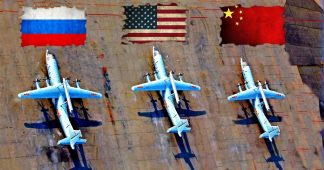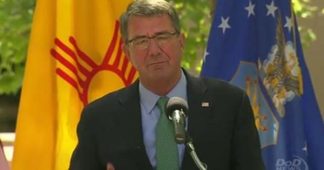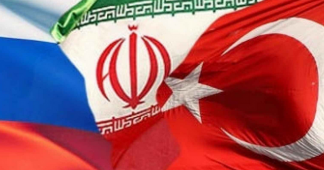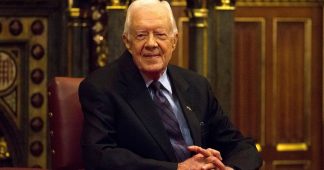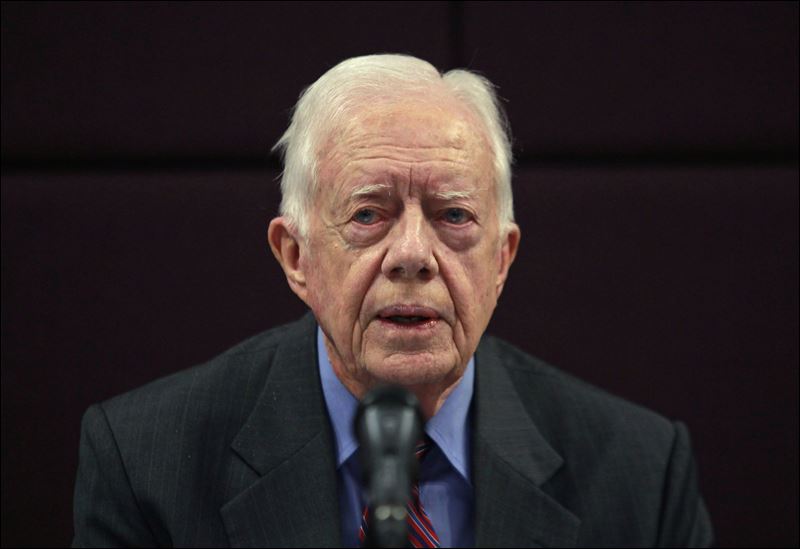British Armed Forces chief prepares for war with Russia
By Robert Stevens
25 January 2018
General Sir Nick Carter, the Chief of the General Staff of the British Armed Forces, has declared that Britain must actively prepare for war with Russia and other geo-political rivals.
Carter, the second most senior figure in the Armed Forces chain of command after Chief of the Defence Staff Sir Stuart Peach, detailed the strategic planning of British imperialism to the Royal United Services Institute (RUSI) and made clear that this has been formulated in collaboration with the United States.
Carter stated his enthusiastic agreement with the new National Security Strategy outlined by US Defence Secretary James Mattis, citing a passage from his speech:
“We will continue to prosecute the campaign against terrorists that we’re engaged in today, but great-power competition—not terrorism—is now the primary focus of US national security.”
Carter listed, “viewed from this perspective,” the threat posed by “increasing competition in the South China Sea; the potential grave consequences of North Korea’s nuclear programme; the arms race and proxy wars that you see playing out in Yemen and Syria, that perhaps stem from Iran’s regional aspirations. With Russia the most complex and capable security challenge we have faced since the Cold War superimposed on much of this, it would be difficult I think, on that basis, not to agree with Jim Mattis’s assessment.”
No longer were there “two clear and distinct states of ‘peace’ and ‘war’,” said Carter. “…[A]ll of these states have become masters at exploiting the seams between peace and war.”
Inverting Clausewitz, Carter declared that any measure by an opposing power to defend itself, politically or economically, was simply war by other means. Virtually anything can now be designated as a “weapon” threatening the “rules-based international architecture that has assured our stability and prosperity since 1945,” he asserted. “What constitutes a weapon in this grey area no longer has to go ‘bang.’ Energy, cash—as bribes—corrupt business practices, cyber-attacks, assassination, fake news, propaganda and indeed military intimidation are all examples of the weapons used to gain advantage in this era of ‘constant competition.’”
This “strategic challenge… requires a strategic response.”
According to Carter, the main enemy to be faced down militarily is Russia, “the arch exponent” of this new warfare, as “described by the Prime Minister in her Mansion House speech last autumn.”
Russia represents “the most complex and capable state-based threat to our country since the end of the Cold War,” he insisted, adding that this was a position shared by “my fellow Chiefs of Staff from the United States, France and Germany… at last year’s RUSI Land Warfare Conference.”
Russia was intent on undermining “our centre of gravity which they rightly assess as our political cohesion; and Russian overtures to Turkey are a clear indication of this.”
Carter insisted that the NATO powers “should identify Russian weaknesses and then manoeuvre asymmetrically against them”—that is, with a campaign of stepped-up aggression thinly disguised as a defensive response.
Initially this would centre on “the business of building real institutional capacity in neighbouring states so that they have the strength and confidence to stand up to Russia and the internal resilience to withstand pressures designed to bring them down from within,” Carter said.
But things could not stop at the building of the East European and Baltic states as a proxy force.
Carter proposed nothing less than the eventual invasion and dismemberment of Russia.
It was necessary to pre-empt a Russian attack on the West. This meant planning for land invasions, with a mass troop mobilisation of “Great Power” rivals on the scale of the two world wars, which between them claimed around 100 million lives.
He urged the Armed Forces to “compare the situation today to 1912 when the Russian Imperial Cabinet assessed that it would be better to fight now, because by 1925 Russia would be too weak in comparison to a modernised Germany; and Japan, of course, drew similar conclusions in 1941…
“The parallels with 1914 are stark. Our generation has become used to wars of choice since the end of the Cold War–but we may not have a choice about conflict with Russia… I think, we need to prepare ourselves to fight the war we might have to fight… And I think the 100th anniversary of World War One gives us a great chance to actually think about what that war might look like.”
Carter revealed, “At the moment, we have a project underway styled as ‘Project Henry Wilson’,” a reference to “the Major General who was the Director of Military Operations in 1914, who was able to pull a mobilization plan off the shelf and send the British Expeditionary Force to Flanders. Now, being able to do that again, I think, is important.”
To carry out such an operation, the British Army needed “to be able to deploy overland by road and by rail. And our Strike concept seeks to project land capability over distances of up to some 2,000 km.”
The “need” to project land warfare capability up to 2,000 km is a direct threat to Russia with a horrifying historical parallel.
Carter stated, “For example we are copying what the Germans did very well in 1940 when all of their prime movers, in terms of their tanks and armoured vehicles, had trailers; and by doing that, it reduces your logistic tail. Those sorts of old-fashioned lessons, brought forward, are definitely improving our ability to deploy. And we will test this concept by driving to the NATO Exercise Trident Juncture which is taking place in Norway this autumn.”
The “old fashioned lessons” to which Carter refers were bound up with the preparation by Nazi Germany for Operation Barbarossa—the 1941 war of annihilation against the Soviet Union, recognised as the most brutal military campaign history has ever seen. The Nazi invasion was carried out over a 2,900-kilometer front, with four million troops and utilising 600,000 motor vehicles.
Carter’s speech was timed to coincide with discussions in the Cabinet of Prime Minister Theresa May over the UK’s military spending plans. With the defence budget facing a £20 billion black hole, proposals have been mooted to slash the size of the armed forced by up to 11,000 soldiers and cut the number of Royal Marines and warships.
Carter countered by insisting that Russia possessed a vast array of military hardware that had to be bested by those powers opposed to it–including Britain, which now had to substantially step up its military capability. The implications of this are enormous in an austerity-strapped country.
Concluding, the general warned the government, “I believe that our ability to pre-empt or respond to these threats will be eroded if we don’t match up to them now… we cannot afford to sit back. We need to recognise that credible deterrence must be underpinned by genuine capability and genuine commitment that earns the respect of potential opponents.”
However, whatever British imperialism plans for its own military is conceived of running in tandem with Washington’s war aims—“prioritising Great Power competition” not only against Russia but China and any strategic rival to America’s global hegemony.
